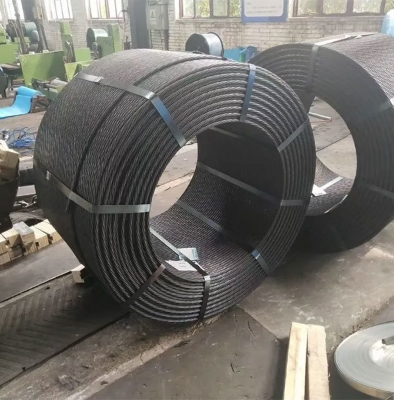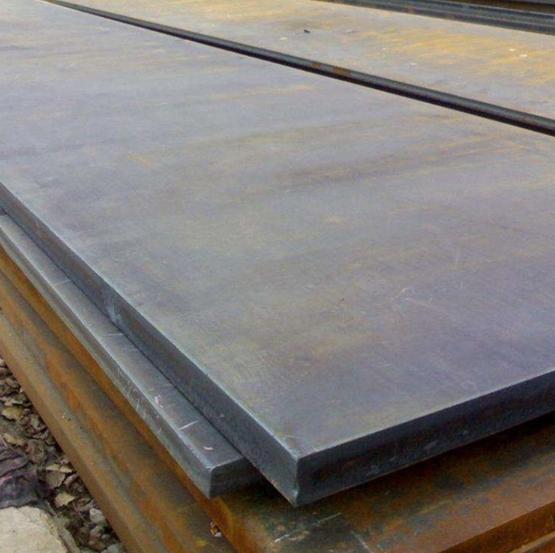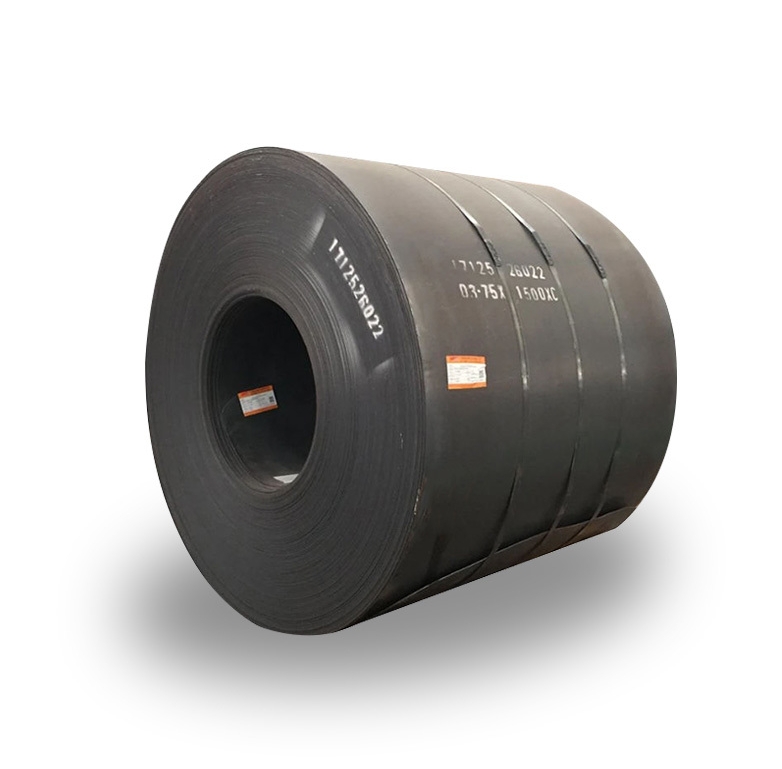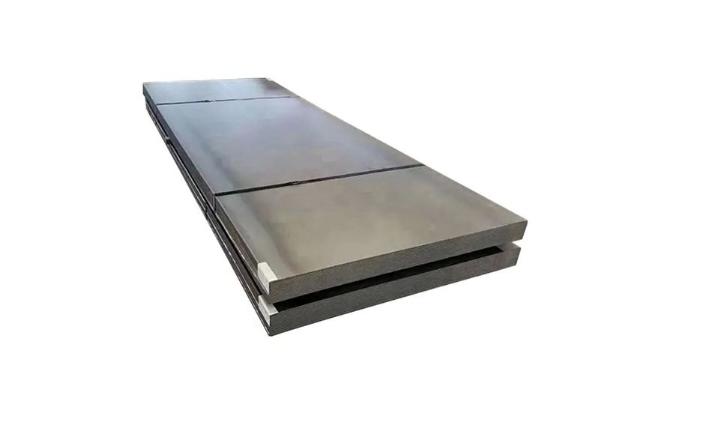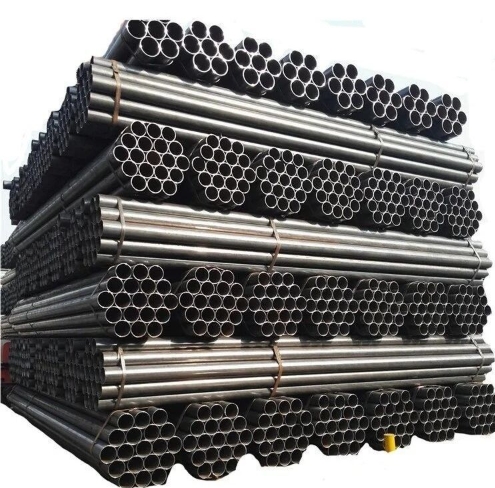A516 (ASME SA516 / ASTM A516) Grade 60–70 carbon steel coil for welded pressure-vessel work when moderate-to-low temperature toughness, reliable weldability, and predictable mechanical performance are required; in 2025, market prices vary widely by region and form (coil vs plate), but typical transaction ranges seen in supplier markets and trading platforms are roughly USD 450–900 / metric ton in China, USD 800–1,100 /t in North America for plate-equivalent supply, and roughly USD 620–760 /t in Europe for comparable heavy plate/coil base metals, with premiums for normalized, N+T, or additional testing.
What ASTM A516 / ASME SA516 is, and common grades
We define ASTM A516 / ASME SA516 as the standard specification for carbon steel plates intended for moderate- and lower-temperature service in welded pressure vessels. The material family focuses on pressure-vessel quality (PVQ): adequate strength combined with notch toughness. The common grades are Grade 55, Grade 60, Grade 65, and Grade 70, with Grade 70 most often specified where higher strength and consistent toughness are required. The specification covers chemical composition limits and impact testing for certain delivery conditions.
Typical chemical and mechanical characteristics (by grade)
We work from mill data and standard limits when discussing composition and mechanicals:
-
Chemistry: low-to-medium carbon content, with manganese and silicon as the main alloying elements; controlled sulfur and phosphorus to maintain weldability. (Exact limits differ by grade and mill.)
-
Yield & tensile strength: yield and tensile increase with grade number (e.g., Gr60 < Gr65 < Gr70), which influences plate thickness choices for a given pressure design.
-
Toughness: impact energy requirements (Charpy V-notch) may be specified at temperature points appropriate for service. For critical vessels, buyers specify normalized (N) or normalized + tempered (N+T) delivery to raise toughness.
We always ask fabricators to confirm the required impact temperature and whether the project requires additional NDT (ultrasonic, radiographic) or specific HIC / NACE acceptance for sour service.
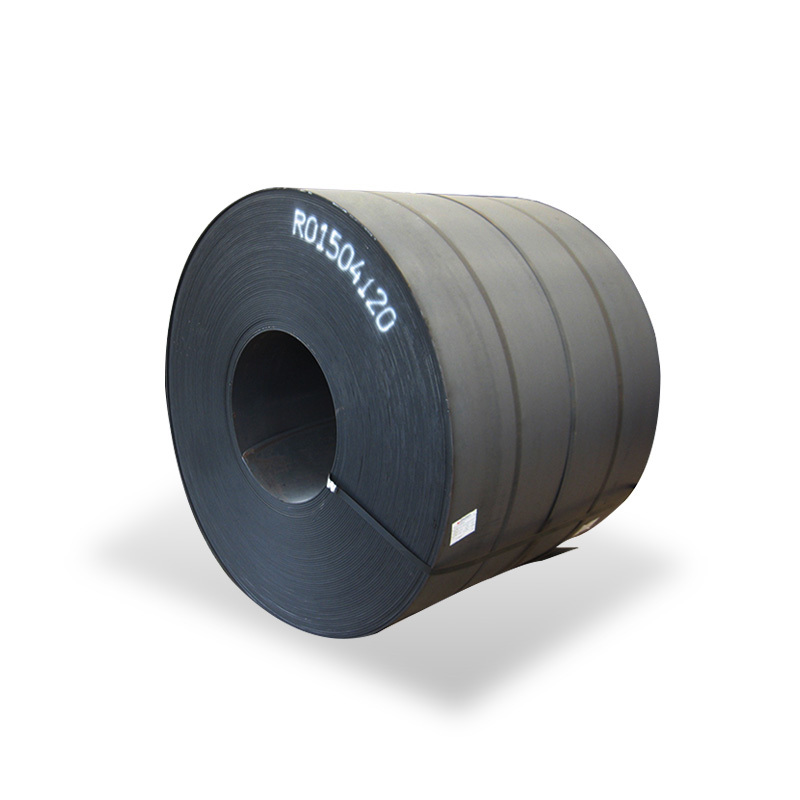
Coil vs plate: delivery states and implications for fabricators
We break the decision down simply:
-
Coil (hot-rolled strip/coil) — usually thinner sections, offered in rolls for downstream slitting or forming. Coils can be economical when the fabricator has decoiling and cutting capability. Coils labelled A516 are available from some mills or re-rollers but often require further processing or certification to match plate PVQ expectations.
-
Plate (cut to size) — thicker, direct plate products are the typical supply for pressure vessels. Plate supply simplifies welding and inspection because dimensions and thicknesses are standardized.
-
Delivery conditions: hot-rolled, normalized (N), normalized + tempered (N+T), and with optional HIC/NACE testing. Normalizing improves grain structure and notch toughness, sometimes required by code or customer spec.
We recommend specifying the exact delivery condition. If a project needs plate toughness at sub-zero temperatures, normalized product is often non-negotiable.
Typical uses and engineering considerations
We see A516 employed in:
-
Vertical/horizontal pressure vessels and storage tanks
-
Boilers and steam drums
-
Heat exchangers (shells)
-
Low-temperature welded vessels where notch toughness matters
Fabrication notes we always stress:
-
Welding: A516 welds readily with common filler metals; preheat and controlled interpass temperature matter when welding thick sections or when hydrogen cracking is a risk.
-
Post-weld heat treatment (PWHT): not always required; evaluate per code and thickness.
-
Design margins: engineers select grade and thickness for pressure and temperature service while maintaining corrosion allowances.
Quality control, testing, and certification expectations
We insist on these minimum documents and controls for pressure-vessel supply:
-
Mill Test Certificate (MTC) to EN 10204 3.1 or equivalent showing chemical & mechanical tests.
-
Impact test records if specified (temperature and energy levels).
-
NDT reports (UT, RT) when the design or code requires them.
-
Traceability: heat number stamping and production records.
-
PVQ declaration where applicable.
If you require HIC or NACE compliance for sour service, this must be specified up front. Suppliers may offer a range of additional tests; these add to price and lead time.
Price drivers & 2025 market snapshot
We analyze the forces that determine A516 pricing in 2025:
-
Raw material & base coil indices: global hot-rolled coil indexes are a leading input. In 2025 HRC and plate quotes across North America and Europe settled in the general bands of roughly USD 840–1,100/t (HRC/CRC variations), which sets a floor for PVQ plate pricing in those markets. Mills and distributors then layer processing, testing, and logistics margins on top
-
Regional production & energy costs: electricity and coking coal shifts affect mill cash costs — domestic plate in North America often commands premiums compared with Asian export offers due to freight, tariffs, and mill gate pricing. Recent U.S. HRC pricing and distributor plate listings commonly referenced base prices near USD 900–1,010/t in 2025 snapshots.
-
Processing & certification: normalized or N+T delivery and extra testing (HIC, NACE, extended Charpy) increase unit cost; smaller lots raise per-ton price.
-
Trade & logistics: container and bulk freight cycles, export quotas, and trade duties can swing landed prices substantially, especially for 1–50 ton orders.
-
Order quantity & bundling: large frame contracts or long-term mill agreements secure better unit pricing; small spot buys often carry a premium.
-
Local demand: construction cycles, oil/gas capex, and seasonal demand patterns push short-term volatility.
We use these signals when building quotes for clients; price ranges below reflect observed transaction levels, not a fixed catalog price.
Global price comparison
Table: Representative A516 (Grade 60–70) coil/plate price ranges — USD per metric ton (2025, indicative)
Note: ranges include typical spot offers for hot-rolled coil/plate equivalents (coil offers tend to be at the lower end but require processing); final price depends on thickness, delivery condition, testing, freight, and lot size.
| Region / Market | Typical range (USD/metric ton) | Notes |
|---|---|---|
| China (export offers, mills & trading platforms) | $450 – $820 / t | Many online suppliers list offers in the $450–$820/t band depending on grade, MOQ, and testing; smaller lot, higher price. |
| India (domestic mill & traders) | $700 – $1,200 / t | Price varies by mill brand (Jindal, AM/NS), thickness, and whether testing/HIC is included. |
| North America (domestic plate/coil markets) | $800 – $1,150 / t | Domestic plate prices and HRC indices in 2025 commonly sit near $900–1,010/t; plate PVQ typically shows a premium. |
| Europe (EU ex-works heavy plate / coil) | $620 – $760 / t | European HRC/plate indexes in mid-2025 commonly quoted around €540–€670/t (~$625–760/t), depending on thickness and delivery condition. |
| South Korea / Japan | $700 – $920 / t | Local mill pricing, export offers, and product form affect the band; sometimes competitive for coil exports to Asia Pacific. |
| Turkey / CIS (re-rollers & mills) | $500 – $850 / t | Competitive export hubs; quality, testing, and lead times vary. |
| Brazil / South America | $850 – $1,350 / t | Higher domestic production costs and logistics often translate to higher local plate prices. |
We derived the ranges above from multiple marketplace offers, mill quotes, and regional index reporting during 2025; prices are given as indicative bands rather than hard quotes. Key market signals that supported these ranges include Chinese supplier listings and trading pages (lower band), U.S. HRC/plate indices and distributor lists (mid-to-upper band), and European indexes (regional mid band).
How we price, quote, and package A516 coils at luokaiwei / MWalloys
When preparing a commercial quote we always:
-
Confirm the exact grade (55/60/65/70) and delivery condition (hot-rolled, normalized, N+T).
-
Specify thickness, width, and length or coil weight and inner/outer diameters. Coil ID/OD affects transportation and handling cost.
-
Add the cost of certification: 3.1/3.2 MTCs, impact testing at specified temperatures, HIC/NACE if required.
-
Clarify packing & shipping: skid/pallet vs seaworthy export packing; weight per coil and number of coils per container.
-
Include lead time assumptions (typical: 2–8 weeks depending on stock, processing, and tests).
-
Present EXW / FOB / CIF / DDP terms so the buyer compares apples to apples.
We recommend buyers request a price breakdown (material + processing + testing + packing + freight). That transparency reduces surprises at the purchase-order stage.
Logistics, minimum order quantities, and lead time considerations
-
MOQ: many exporters quote a minimum (commonly 5–20 metric tons) for export coil lots; some mills can supply cut plates in smaller bundles. Check MOQ early.
-
Lead time: depends on stock vs mill run. Stock items: 7–21 days is typical; mill orders with normalization/testing: 4–10 weeks. If HIC/NACE tests or additional traceability are required, add time.
-
Freight & duties: container space and port-to-port schedules can add 2–6 weeks; bulk shipment and bonded transport options vary by region. Tariffs or anti-dumping measures materially affect landed cost — always check current trade measures for origin/destination.
Environmental and lifecycle considerations
We recommend thinking beyond first-cost:
-
A516 is highly recyclable. Using recycled content or specifying mills with decarbonization commitments can reduce lifecycle footprints.
-
Normalize vs non-normalize tradeoffs: extra processing raises embodied energy but can extend vessel life by improving toughness.
-
For public tenders or corporate procurement, include a basic embodied carbon note or supplier sustainability statement; it’s increasingly relevant to large buyers.
FAQs
Q1 — Is A516 coil the same as A516 plate for pressure vessels?
A: Not necessarily. Coil is a rolled, wound form that often requires downstream cutting or processing; plate is flat, cut to size, and more commonly used directly in vessel fabrication. If you plan heavy welding and thicknesses above typical coil limits, specify plate. (Coil offerings can be economical for thinner shells but confirm PVQ status before purchase.)
Q2 — What grade should I specify: 60 or 70?
A: It depends on design stress and toughness requirements. Grade 70 gives higher yield strength and is widely used; Grade 60 is acceptable for less demanding cases. When in doubt, use the grade that satisfies the design code/regulatory spec with a conservative margin.
Q3 — How much extra does normalized (N) or N+T condition cost?
A: Normalizing and heat treatment add mill processing cost and extend lead time. The premium varies by mill and region — typically a noticeable per-ton uplift versus standard hot-rolled delivery. If project safety requires extra toughness, budget for the processing and testing premium early.
Q4 — How do I compare domestic vs imported quotes?
A: Ensure apples-to-apples: compare delivery condition, mill tests, NDT scope, packaging, trade terms (EXW/FOB/CIF/DDP), and freight/tariff assumptions. Imported material may seem cheaper on a mill quote but landed cost and lead time can change the economics.
Q5 — Where can I get reliable price data and rapid quotes?
A: Use a mix of direct mill/distributor quotes, trading platforms (for indicative offers), and independent index services for HRC/plate to understand base trends. For purchase decisions, always validate the supplier’s MTC, production traceability, and third-party inspections if needed.



